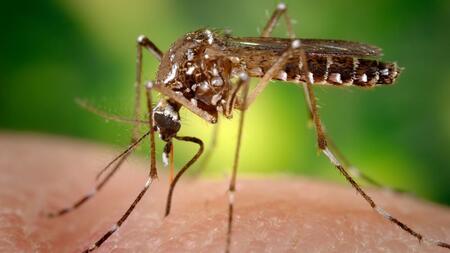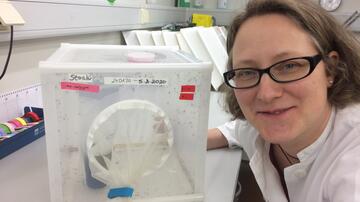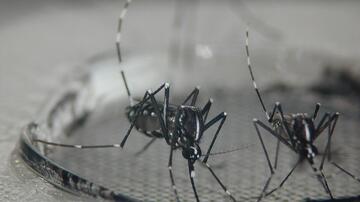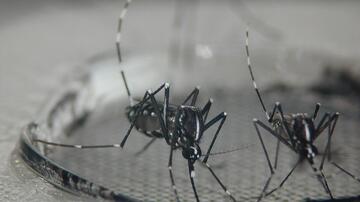Mosquitoes and mosquito-associated viral infections in Germany
Mosquitoes are transmitters of numerous viruses that are pathogenic to humans. Besides the known local species, new types of mosquitoes have been imported into Germany over the past few years. In order to prepare for the potential formation of colonies of these new types of mosquitoes and the accompanying spread of new pathogens, mosquitoes found within the country are being collected on a nationwide basis in Germany. The main aim of this collection process is to identify new invasive types of mosquitoes such as the Asian tiger mosquito Aedes albopictus early enough. At the same time, various mosquitoes found within the country are being tested for their vector competency whereby captured mosquitoes are tested for potential pathogens and their capacity to transmit tropical viruses. The Bernhard Nocht Institute for Tropical Medicine has a high-level biosafety insectarium which now makes conducting such investigations possible for the first time in Germany.
Mosquitoes play an important role in the transmission of various infectious pathogens, particularly certain viruses. Climatic and ecological changes, together with international trade and increased human travel, have led to different types of mosquitoes spreading very rapidly from their endemic areas in Asia or Africa to almost all continents. Some of these “invasive” types, such as the Asian tiger mosquito Aedes albopictus and the Japanese bush mosquito Aedes japonicas, have now also colonized parts of Europe, including Germany. They are considered significant transmitters of viral diseases which have already resulted in the first outbreaks of West Nile, dengue and chikungunya viral infections in some European countries.
In order to be prepared for new potential outbreaks of viral infections in Germany, extensive collections of mosquitoes across large parts of the country are conducted on an annual basis. These mosquitoes are tested for viruses and other pathogens by means of molecular methods. At the same time, various local and new types of mosquitoes are tested for their ability to transmit tropical viruses such as dengue, West Nile and chikungunya. For this purpose, in the high biosafety laboratory, mosquitoes are fed on blood that is infected with the different viruses. After a few days of incubation at varying temperatures, saliva of the infected mosquitoes is tested for active virus particles. These virus particles give an indication of whether the mosquito is able to transmit the corresponding virus or not.
Our investigations on over 500,000 mosquitoes have shown that no highly pathogenic viruses such as dengue, chikungunya and West Nile are spread in Germany. However, we have often detected various other viruses with low pathogenicity such as Sindbis, Batai or Usutu viruses in the mosquitoes. The transmissions of the Usutu virus to birds has lead to the increased number of deaths of the blackbird in the Federal States of Baden-Württemberg, North Rhine Westphalia, Lower Saxony and Hamburg. In addition, the virus has also been found in certain blood donors. Furthermore, in 2018, the West Nile virus was detected in both wild and aviary birds for the first time in Germany. Thorough assessment supports the hypothesis that West Nile fever is regularly imported into Germany, however, the spread of the virus between mosquitoes and birds only occurs during extended periods of high temperatures in the summer. Besides viruses, a type of roundworm known as Dirofilaria repens, mainly found in dogs, has also been repeatedly found in mosquitoes. Mosquitoes can occasionally transmit the virus to humans where it causes skin lesions.
The initial findings on vector competency studies of local mosquitoes, have shown that the common house mosquito, Culex pipiens, has the potential to transmit the West Nile and Japanese encephalitis viruses and that the Asian tiger mosquito can transmit the Zika and chikungunya viruses. With the exception of the chikungunya virus, there is a higher risk of transmission during extended periods of high temperatures of over 24 degrees. Therefore, the current risk of this in Germany is relatively low. If Aedes albopictus continues to propagate, it must be assumed that local chikungunya infections are more likely to occur in the future.
The main questions currently being investigated include: To what degree have pathogens that have already been detected in mosquitoes in Germany also been transmitted to humans? Under what conditions do mosquitoes in Germany transmit other tropical viruses such as the dengue virus? Why are some mosquitoes able to transmit viruses whereas others do not?






